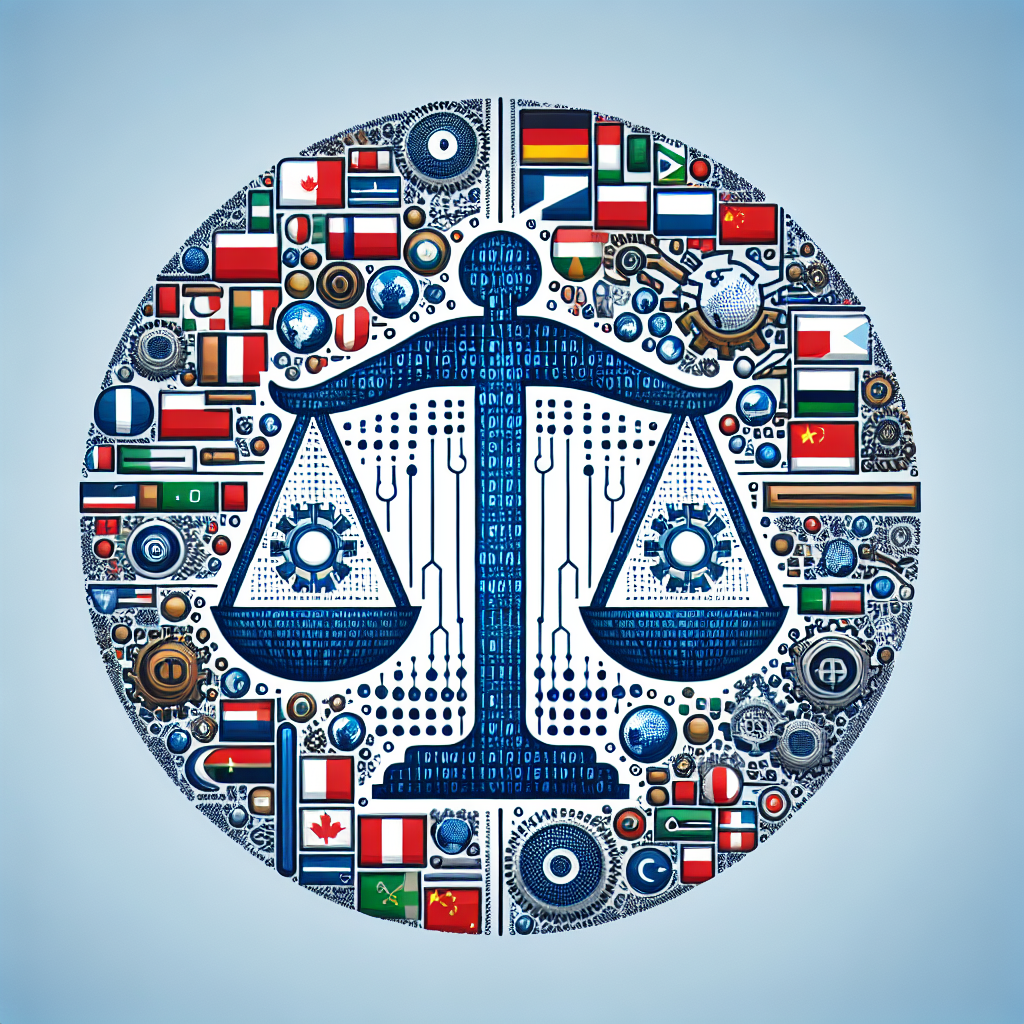Artificial intelligence (AI) has the potential to transform global development initiatives by improving efficiency, accuracy, and scalability in various sectors such as healthcare, agriculture, education, and disaster response. However, as AI technologies continue to advance, it is crucial to ensure that they are developed and deployed ethically to avoid potential harm to individuals and communities. This article explores the concept of ethical AI in global development initiatives, the importance of integrating ethical considerations into AI projects, and some frequently asked questions about ethical AI in development.
What is Ethical AI?
Ethical AI refers to the development and deployment of artificial intelligence technologies in a manner that prioritizes human well-being, fairness, transparency, and accountability. It involves considering the potential social, economic, and ethical implications of AI systems and taking steps to mitigate any negative impacts. Ethical AI frameworks typically encompass principles such as fairness, accountability, transparency, privacy, and inclusivity, among others.
In the context of global development initiatives, ethical AI is particularly important to ensure that AI technologies are used responsibly and effectively to address pressing challenges in developing countries. By integrating ethical considerations into AI projects, organizations can build trust with local communities, minimize potential biases in AI algorithms, and ensure that the benefits of AI are equitably distributed.
Why is Ethical AI Important in Global Development Initiatives?
Ethical AI is essential in global development initiatives for several reasons:
1. Fairness and Equity: AI systems have the potential to perpetuate or exacerbate existing inequalities if they are not designed and implemented with fairness in mind. For example, biased algorithms could lead to discriminatory outcomes in areas such as hiring, lending, or healthcare. By incorporating fairness principles into AI projects, organizations can reduce the risk of reinforcing societal biases and promote equity in development interventions.
2. Accountability and Transparency: AI systems can be complex and opaque, making it challenging to understand how they make decisions and assess their impact. Ethical AI frameworks emphasize the importance of accountability and transparency in AI projects, ensuring that stakeholders can hold developers and users accountable for the outcomes of AI systems. Transparent AI systems also foster trust among users and help mitigate concerns about potential misuse of AI technologies.
3. Privacy and Data Protection: AI technologies often rely on large amounts of data to train algorithms and make predictions. In the context of global development initiatives, privacy and data protection are critical considerations, especially when working with sensitive or personal data. Ethical AI frameworks include safeguards to protect the privacy of individuals and ensure that data is used responsibly and in compliance with relevant regulations.
4. Inclusivity and Participation: Ethical AI in global development initiatives involves engaging with diverse stakeholders, including local communities, policymakers, and civil society organizations, to ensure that AI projects reflect the needs and perspectives of all stakeholders. By promoting inclusivity and participation, organizations can build more sustainable and impactful AI solutions that address the unique challenges faced by different communities.
Frequently Asked Questions about Ethical AI in Development
Q: How can organizations ensure that AI projects in global development initiatives are ethical?
A: Organizations can ensure that AI projects in global development initiatives are ethical by adopting ethical AI frameworks, conducting rigorous impact assessments, engaging with stakeholders, and implementing safeguards to protect privacy and data security. It is important to prioritize transparency, fairness, and accountability in AI projects to build trust with communities and mitigate potential risks.
Q: How can ethical considerations be integrated into the design and development of AI technologies?
A: Ethical considerations can be integrated into the design and development of AI technologies by incorporating principles such as fairness, transparency, privacy, and accountability from the outset. Developers should conduct ethical impact assessments, engage with diverse stakeholders, and continuously monitor and evaluate the impact of AI systems to ensure that they align with ethical standards.
Q: What are some examples of ethical AI projects in global development initiatives?
A: Some examples of ethical AI projects in global development initiatives include using AI to improve healthcare delivery in underserved communities, optimize crop yields in agriculture, enhance disaster response and preparedness, and promote access to quality education for marginalized populations. These projects leverage AI technologies to address pressing challenges in developing countries while prioritizing ethical considerations such as fairness, transparency, and inclusivity.
Q: How can organizations address bias and discrimination in AI algorithms?
A: Organizations can address bias and discrimination in AI algorithms by implementing strategies such as data preprocessing to mitigate biases in training data, using diverse and representative datasets, and conducting regular audits and evaluations of AI systems to identify and address potential biases. It is essential to prioritize fairness and equity in AI projects to ensure that algorithms do not perpetuate or exacerbate existing inequalities.
Q: What are the key challenges in implementing ethical AI in global development initiatives?
A: Some key challenges in implementing ethical AI in global development initiatives include limited awareness and understanding of ethical AI principles, resource constraints, data privacy concerns, and the need for capacity building and training in AI ethics. Overcoming these challenges requires collaboration among stakeholders, investment in ethical AI frameworks, and a commitment to promoting responsible and sustainable AI projects in development settings.
In conclusion, ethical AI has the potential to drive positive social impact and innovation in global development initiatives. By prioritizing ethical considerations such as fairness, transparency, accountability, and inclusivity, organizations can build trust with local communities, mitigate potential risks, and ensure that AI technologies are used responsibly to address pressing challenges in developing countries. Through a commitment to ethical AI principles, organizations can harness the power of AI to create a more equitable and sustainable future for all.

